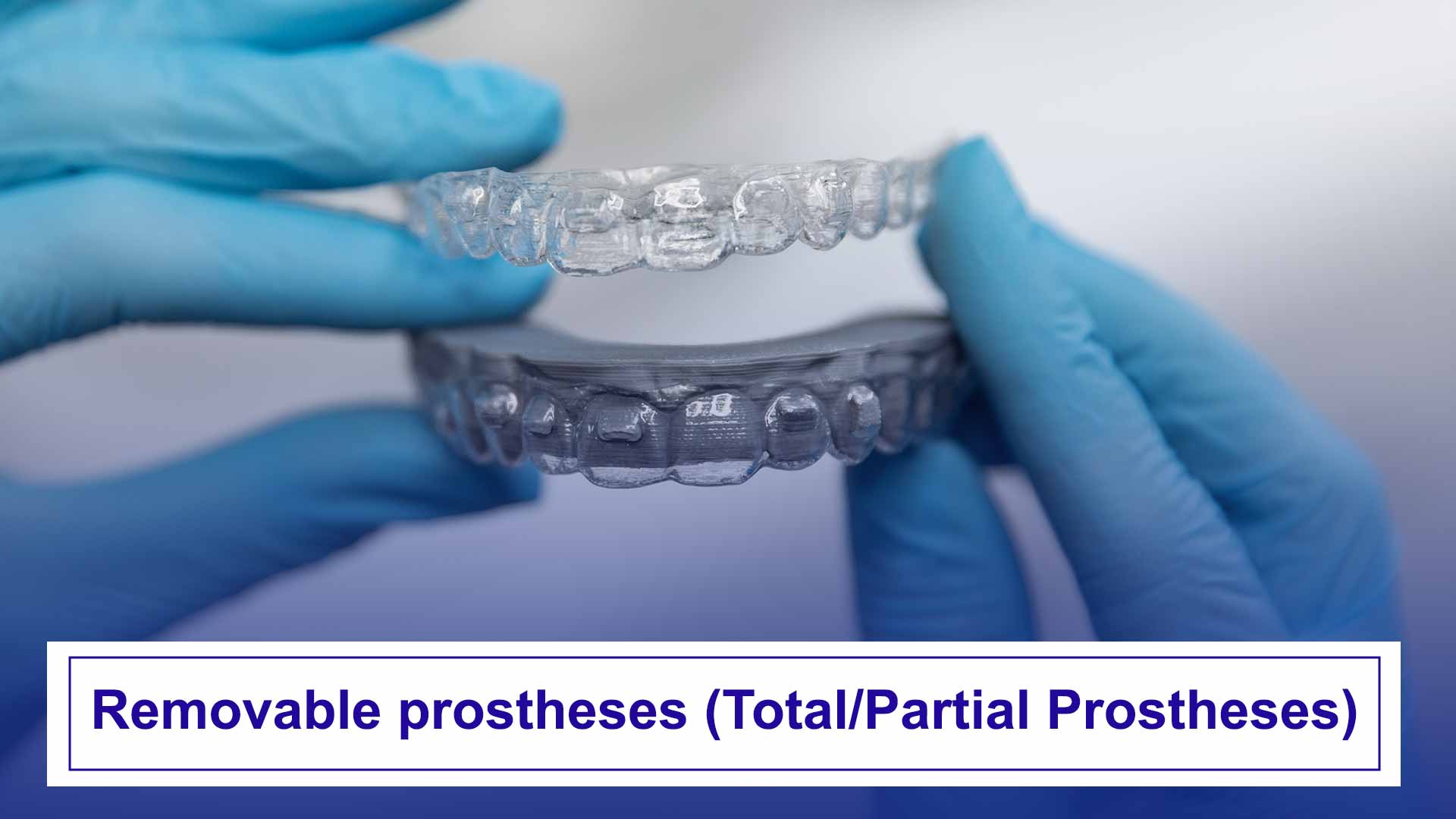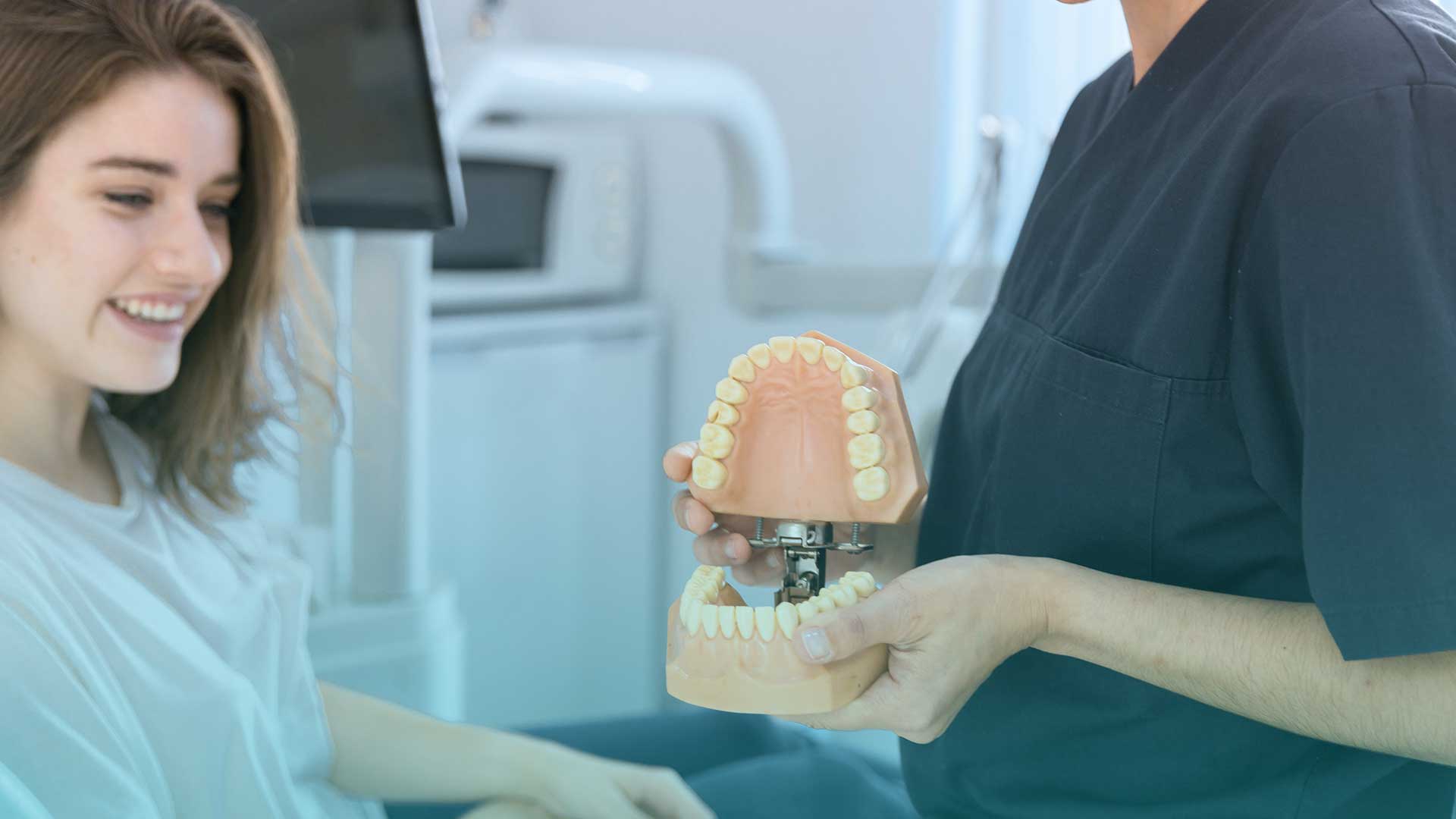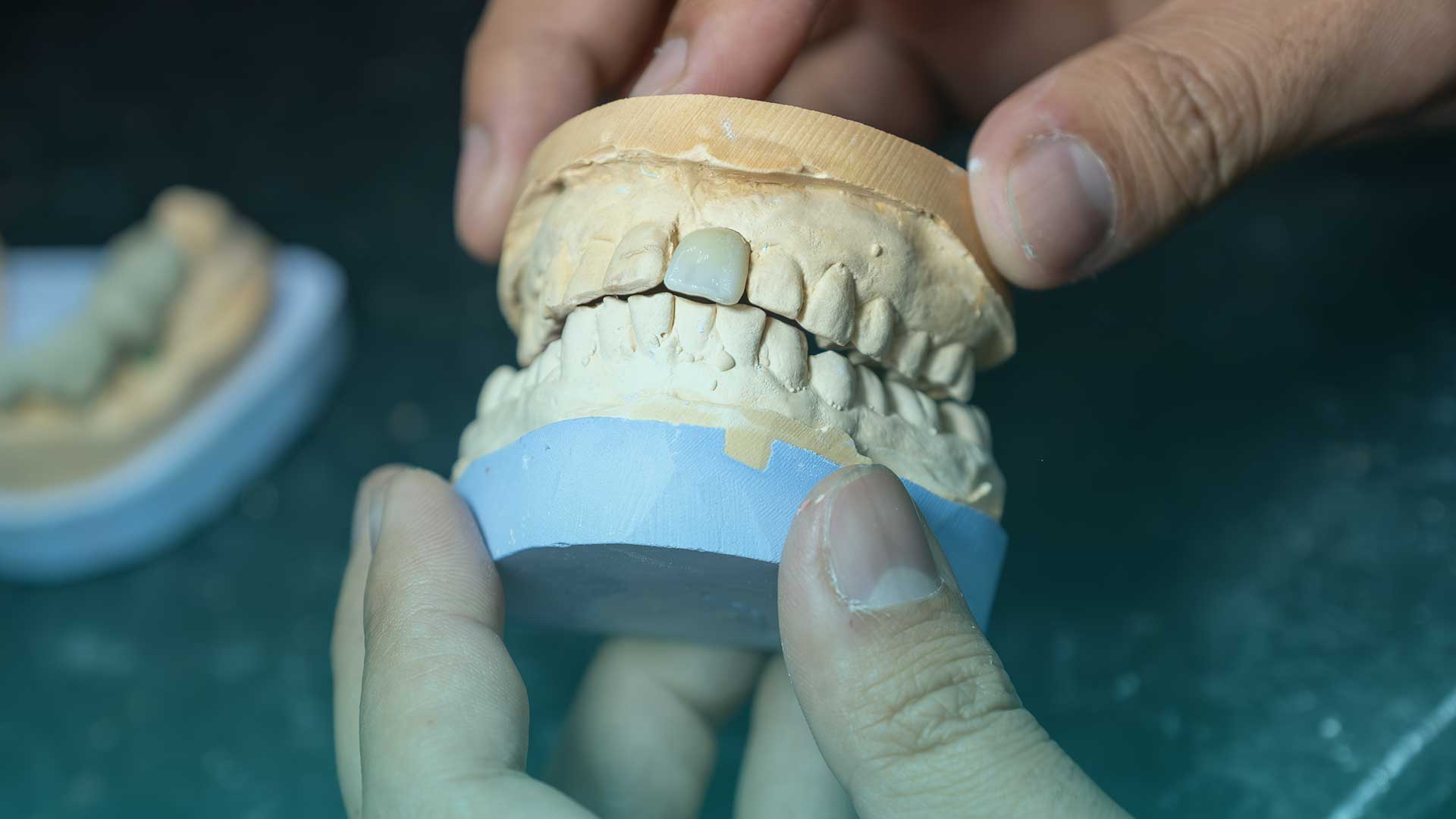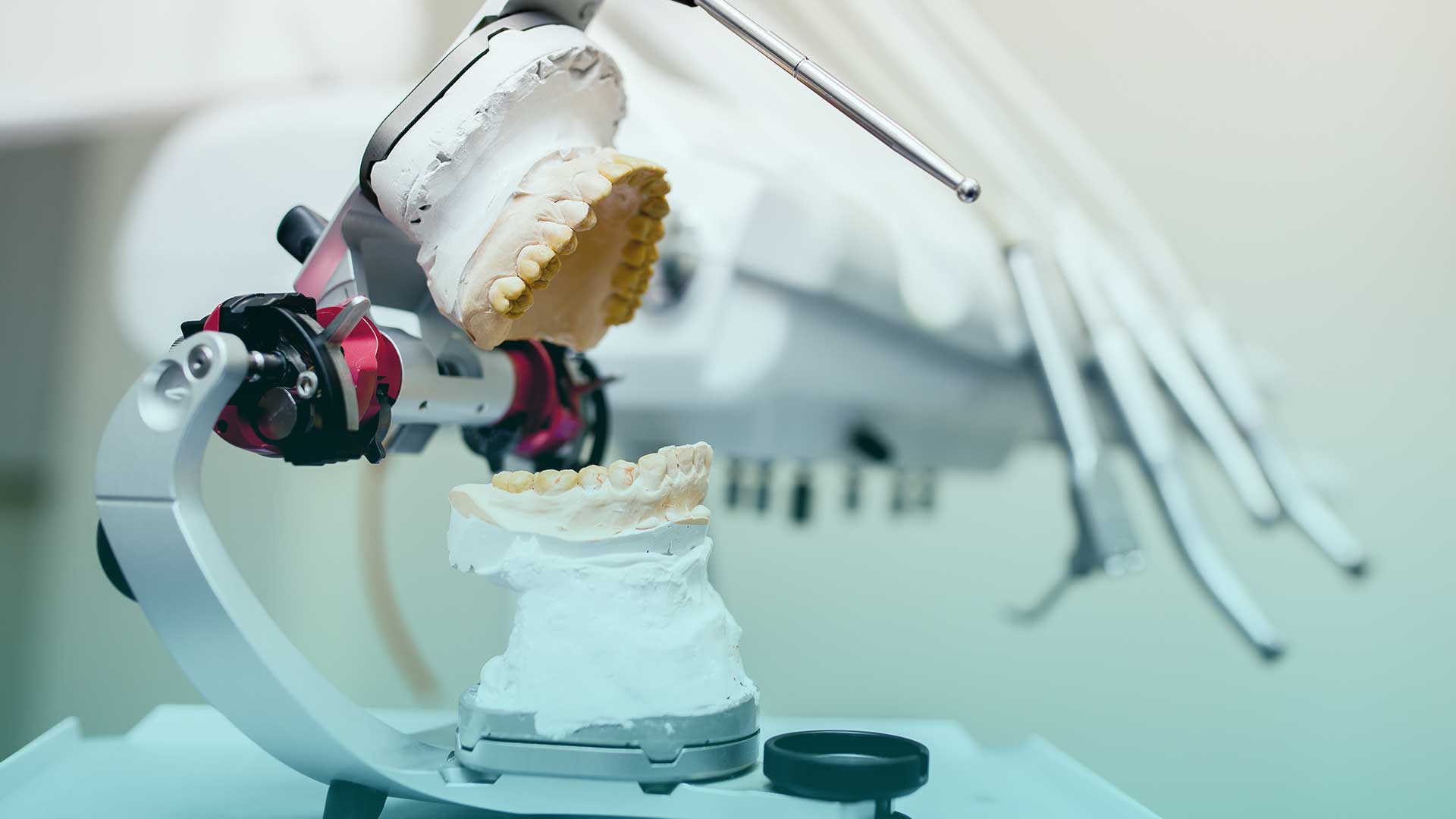Aliadent Oral and Dental Health Clinic
Removable prostheses (Total/Partial Prostheses)

Dentures in Istanbul, commonly known as false teeth, are custom-made removable prostheses for absent teeth. Designed to fit comfortably in the mouth, they rely on support from the natural gums and underlying jawbone. Traditional dentures remain a viable option for patients who want a non-invasive and affordable solution for missing teeth.
These prosthetic devices play a crucial role in oral health, aesthetic appearance, and the overall quality of life. Dentures help restore a person's ability to chew and speak properly, while also supporting the facial structure and preventing the sagging appearance associated with missing teeth. Choosing the right dentures in Istanbul, along with careful maintenance, will help you regain a beautiful smile and improved confidence.

Types of Complete Dentures:
Complete dentures, also known as full dentures, are removable prosthetic devices that replace all the teeth in either the upper or lower jaw, or both. These custom-made solutions offer a viable option for individuals who have lost all their natural teeth. While traditional dentures are a popular choice, it's important to understand the different types available to make an informed decision that best suits your needs.
1. Conventional Complete Dentures:
Conventional complete dentures are the most common type, typically fabricated after the gums have healed following tooth extraction. The process involves multiple appointments, including impressions, wax try-ins, and final adjustments, to ensure a comfortable and secure fit. These dentures are generally more affordable compared to other options.
2. Immediate Complete Dentures:
Immediate complete dentures, as the name suggests, are inserted immediately after tooth removal. While this option provides patients with a temporary set of teeth right away, it's important to note that adjustments may be necessary as the gums heal and change shape over time.
3. Overdentures:
Overdentures are a unique type of complete denture that is supported by dental implants. These implants, surgically placed in the jawbone, provide additional stability and retention, enhancing the overall comfort and function of the denture.
4. Implant-Supported Complete Dentures:
Implant-supported complete dentures, also known as All-On-4 or Snap-On dentures, offer the most secure and stable option. Four to six implants are strategically placed in the jawbone, serving as anchors for a custom-made denture that clips onto the implants. This type of denture provides the closest resemblance to natural teeth in terms of function and aesthetics.
The choice of complete denture depends on various factors, including the patient's oral health, budget, and individual preferences. Consulting with a qualified dentist is crucial to determine the most suitable option for your specific needs.

The Benefits of Dentures:
Dentures in Istanbul, Turkey, offer a transformative solution for individuals who have experienced tooth loss. These custom-crafted prosthetics not only enhance your smile but also provide a host of benefits that impact your health and well-being.
Here's a closer look at why patients choose dentures:
- Aesthetic Appeal: Dentures help restore a natural-looking smile, which can boost self-confidence.
- Facial Support: By filling out the profile, they support facial muscles, preventing them from sagging and giving a more youthful appearance.
- Eating and Speaking: Dentures restore the ability to chew most foods and improve speech, enhancing overall well-being and quality of life.
- Cost-Effective: Compared to other dental replacement options like implants, dentures can be more affordable.
The Process of Getting Implant Supported Dentures:
The process begins with a thorough dental examination, including X-rays, to determine the health of the jawbone and its suitability for implants. If deemed a good candidate, titanium posts are surgically placed into the jawbone. After a healing period during which the bone fuses with the implants, a process called osseointegration, the custom-made dentures are attached to the implants.
Denture Care and Maintenance:
Just like natural teeth, dentures require proper care and maintenance to maintain their functionality, aesthetics, and longevity. Here are some essential steps to keep your dentures in top condition:
- Regular Cleaning: Just as with natural teeth, dentures need daily cleaning to remove food particles and prevent plaque buildup. Use a soft-bristled brush and non-abrasive denture cleaner. Avoid using toothpaste as it can be too harsh for the dentures.
- Overnight Soaking: Most types of dentures need to stay moist to keep their shape. Place them in a denture-specific soaking solution or water overnight.
- Handle with Care: Dentures are delicate and can break if dropped. When handling them, stand over a folded towel or a basin of water.
- Regular Dental Check-ups: Even if you have full dentures, it's essential to see your dentist regularly to ensure the dentures fit correctly, and to check for signs of oral diseases, including cancer.

Adjusting to Your New Dentures:
Getting new dentures can be an exciting step towards restoring your smile and regaining confidence. However, it's natural to experience an adjustment period as your mouth and muscles adapt to the new prosthetics. Here are some tips to help you ease into your denture journey:
- Eating: Start with soft foods cut into small pieces. Chew slowly using both sides of your mouth to keep the dentures stable. As you get used to your new dentures, reintroduce more challenging foods.
- Speaking: With practice, speaking with dentures becomes easier. If they "click" while you're talking, speak more slowly.
- Wearing Schedule: Your dentist might advise you to wear your dentures all the time, including while sleeping, for the first few days to identify areas of discomfort.
Potential Challenges
Adapting to new dentures often involves a temporary adjustment period. It's completely normal to experience some initial changes related to saliva flow, tongue positioning, and even minor discomfort. During the first few days or weeks, you might notice that you produce more saliva than usual as your mouth adapts to the presence of the denture. Additionally, your tongue may feel a little crowded, which can slightly affect how you speak at first.
Some minor irritation or soreness where the denture touches your gums is also common, especially while you're getting used to them. However, if you notice persistent sore spots, or if any of these initial adjustments don't subside, it's important to schedule a follow-up appointment with your dentist. A quick adjustment to the denture can provide relief and prevent further discomfort, allowing you to wear your new dentures with confidence and ease.
The Future of Dentures
The world of dental technology is constantly evolving, and dentures have seen remarkable advancements. Today's materials offer incredibly lifelike appearances with subtle details that mimic natural teeth, making them virtually indistinguishable from your original smile. Moreover, new designs prioritize comfort and stability, providing a secure fit that minimizes the potential for movement or slippage. This means that denture wearers can enjoy greater confidence and peace of mind while eating, speaking, and smiling.
Dentures in Istanbul, Turkey, are at the forefront of these innovations. If tooth loss has taken a toll on your confidence or functionality, modern dentures provide a transformative solution. While initially an adjustment, with a positive attitude and proper care, dentures offer individuals the chance to restore their oral health and reclaim a radiant smile. Regular dental check-ups play a vital role in ensuring your dentures continue to fit comfortably and perform optimally, allowing you to embrace life fully and smile with renewed assurance.









